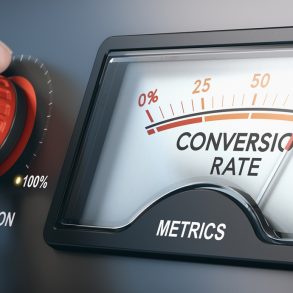Deeply-discounted variable rates have historically beat out 5-year fixed rates roughly 77% of the time.*
But CIBC economist Benjamin Tal suggests the coming five years may “slightly” favour fixed rates.
He displayed the following chart at the CAAMP Forum on Monday.
(Click picture to enlarge)
It projects that the typical variable-rate mortgage (VRM) will be more expensive over five years than the typical 5-year fixed. That’s based on forward swap rates and a closing date in January 2011, says Tal.
Tal was careful to point out that this isn’t a blanket recommendation of fixed rates; it’s more of a commentary on how narrow the gap has become between fixed and variable mortgages, based on market rate expectations.
Some people will undoubtedly look at this and see no point in assuming the risk of a VRM given the minimal projected cost difference.
Others will remain skeptical, with the belief that North America’s economy isn’t strong enough to spark sustained 3%+ inflation (and the rapid rate increases that would come with it). This minority would rather plow their up-front payment savings back into their VRM for 1-2 years, and take their chances later in their term.
Whatever the case, rates are near the bottom and the market is clearly betting on future hikes. However you look at it, going variable is no longer as clear-cut a strategy as it once was.
In determining what’s best for you, check suitability first. Then have your mortgage professional run some rate simulations. If a 3% increase in prime would stress your cash flow, a VRM is absolutely not worth the risk.
* Based on Moshe Milevsky’s mortgage rate research.
Robert McLister, CMT








My husband and I are considering a 3.54% 5 year fixed. My thinking is that once the Bank of Canada raises prime by 1.5% variable rates will be higher than 3.54%. Prime will then probably go even higher. It is a gamble either way but I’d rather be safe. Even if we’re wrong and prime only goes up 1% we’re not losing much with a fixed rate.
I have to agree at this point that it’s a lot trickier to gauge which way to go. For that reason alone, I might be tempted into a 5 year fixed if I were shopping for a mortgage right now. Even if variable beats out fixed for the next 5 years, will you truly be saving that much to warrant that extra risk? In 2007, I went variable when fixed was around 5.80% for 5 years and variable was prime -0.9%. At that point, I guessed that prime would likely not go up by over 2% to warrant going fixed. In hindsight, I ended up making a phenomenal choice but it was still an educated guess.
I’d be curious about some of the blended offers though. Some of those could be interesting options for people trying to hedge their bets even further.
What about a mortgage that is half variable and half fixed? Is this a good option?
I am a mortgage Agent in Ontario. At present I am pushing fixed rates (in most situations – as some clients may still be better with variable). It is very realistic (in my opinion) for prime to increase by more than 1.5% over the next 5 years, so I agree, if you want to play it safe variable is definately the way to go, especially if you don’t have the extra cash flow to support a higher payment.
*this post is not intended to be taken as mortgage advice as a full assessment would be necessary to provide such advice
Hi Vic, Hybrids can be a good solution, depending on the rates and the client. And they don’t always have to be 50/50. For instance, you might want less variable exposure and put 2/3 of your mortgage in the fixed rate and 1/3 in the variable. Just be sure to keep the terms aligned (i.e. don’t get a 3-year variable with a 5-year fixed). Otherwise you might get a sub-par renewal rate when the shorter duration matures. Cheers, – Rob
I agree that the days of assuming a variable will beat out a fixed is over, at least in the short term. I have friends who are now locking in their variables into todays low fixed rates. I personally dont think these low fixed rates will be around much longer, and would be locking in too myself.
For the last 2 renewals we have always played it safe with a fixed rate mortgage. My understanding with our variable 5 year closed mortgage is in one year from now if we are “nervous” we can opt for a fixed mortgage with no penalty providng that we purchase 4 years or more. The papers have not been signed yet so I am reading everything I can find on forecasts. This is a gamble for us and we are not gamblers.